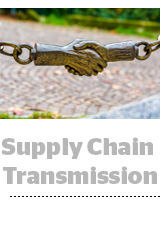 The European Union’s GDPR regulations have been in force for less than a week, but ad tech exchange players are already feeling whiplash.
The European Union’s GDPR regulations have been in force for less than a week, but ad tech exchange players are already feeling whiplash.
The crux of the problem is advertising technology vendors must have user consent, for data-driven advertising – yet there are only two scaled ways to get it.
Either use Google’s GDPR pipeline from publishers to buyers or use the IAB Europe’s Transparency and Consent Framework (TCF), which is backed by the broader ad tech ecosystem.
But the two GDPR frameworks aren’t interoperable, at least for now.
Google plans to fully implement the TCF in August, with an interim solution coming in June so IAB consent can be translated to the DoubleClick for Publishers SSP.
Though even for non-Google campaigns, consent in the ecosystem is spotty.
For instance, Adform said 20 of the top 25 SSPs in its buying network are passing TCF consent on some EU inventory. That seems good, but on average only 40-50% of supply from top SSPs are passed with consent signals, with some passing consent with almost all inventory while others hardly pass consent at all.
“We are still seeing major discrepancies in how ad tech companies are passing the IAB framework signals and we are still working on sorting out this with some SSPs and DSPs,” said Jakob Bak, Adform’s co-founder and CTO.
Many SSPs “are sending half-signals or customized consent signals,” said AppNexus product VP Steve Truxal. The IAB framework invalidates consent entirely if the field is incomplete or vendors are using different language.
Also, many publishers are gaining consent for their direct vendors but leaving out partners like measurement companies or DSPs, said Briian Wilson, Conversant’s senior director of media acquisition.
“But I think you’re going to see publishers iron out the wrinkles pretty quickly,” she said, as more of them gather consent via CMP and light up demand sources that have gone dark since GDPR.
Google’s framework benefits because it can transmit consent from inventory to buyer without intermediaries.
AppNexus saw Google’s DoubleClick Bid Manager (DBM) spend consolidate to the Doubleclick for Publishers SSP last Friday and over part of the weekend, Truxal said.
AppNexus worked directly with Google on a consent solution, he said, and managed to return DBM spend almost to pre-GDPR levels by the beginning of this week.
AppNexus has “technical and contractual agreements with Google” and was an early responder to Google’s vendor outreach, which helped it get a quick turnaround on its consent integration, Truxal said.
Google is working with some exchanges outside of the IAB Europe framework for alternative ways to pass consent, according to one Google source with knowledge of the integrations.
Until Google fully integrates with the TCF later this summer and until publisher adoption of the framework reaches critical mass, marketers may see lumpy campaign results since some ad tech bucket brigades will pass consent smoothly and others will break the chain and return non-personalized ads.
This post was syndicated from Ad Exchanger.

More Stories
Scroll Media boosts in-game advertising with new feature
Kiwi filmmaker spotlights media struggles at top global awards
T-Mobile Has Appointed Kristin Harrer As Senior Vice President and Chief Brand Officer